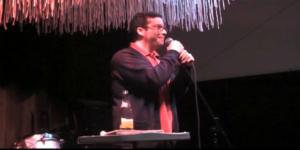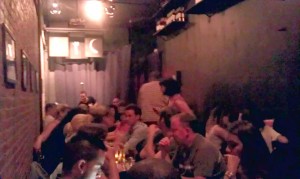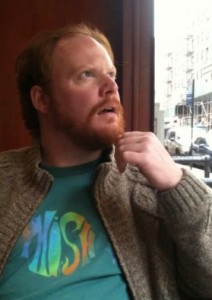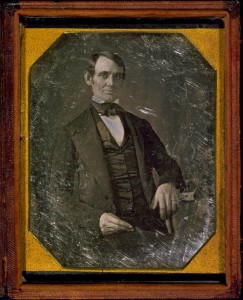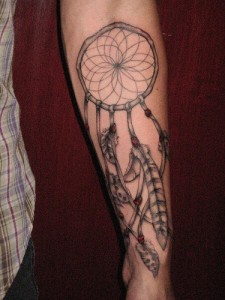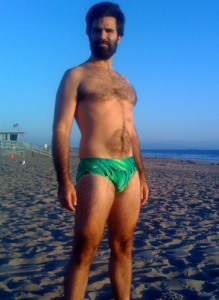 Better read critics and theorists may have long solved this problem, but for me it’s been hard to figure out where to go in critique and creativity after going meta—which I’m here going to clunkily define as using the very aspects, techniques, or tools of some process to go out and above that process in order to make some kind of comment on it. Or what the new OAD says: “denoting something of a higher or second-order kind.”
Better read critics and theorists may have long solved this problem, but for me it’s been hard to figure out where to go in critique and creativity after going meta—which I’m here going to clunkily define as using the very aspects, techniques, or tools of some process to go out and above that process in order to make some kind of comment on it. Or what the new OAD says: “denoting something of a higher or second-order kind.”
Now: it’s no good going meta about something’s having gone meta. This is just another form of going meta. Meta-meta is not cubing the square, so to speak, it’s making a 3-D model of a tesseract.
One way to get past meta came yesterday from Josh Fadem, a comic whose incredible, unparalleled, standup work is hard to find online but whose sketch work is all over. (You might know him as Liz Lemon’s agent.) I had questions about his deliberately “shitty” timing, where pratfalls and mic-stand trouble will last upward of 4 minutes while, later, four different one-liners get sped through all in a row. I suspected that there was careful timing going on on his end, despite the timing on our end being shitty, in terms of classic comic timing.
In doing standup, Fadem told me,
I’m gonna assume the audience all knows what good timing is. So if I make them think that a joke is going to come in a particular way, but then it comes in a totally bad way or different way, that’s a whole other joke in itself. But it’s also a new laugh. It’s the same thing—like if you ever watched movies like The Room. People have … they’re laughing at these movies for a particular reason, because it’s not doing what movies are supposed to do. There’s something funny about doing everything wrong. I used to approach it from a meta place, but now I think I’m thinking of something different. It’s like: where’s the joke that’s the off joke? I’m thinking of it more from a joke place than from a “What can I do that’s meta?” place.
I didn’t press Fadem on these ideas, they only surfaced going through my notes afterward. But I take him to mean that a “meta place” is highly rational, and the aim when one operates there is to provoke the audience toward increased awareness. Sure, this kind of provocation can lead an audience to laugh, but the whole approach is didactic and marmy. A “joke place”, on the other hand, is irrational. (N.B.: irrational ≠ subrational.) And given Fadem’s chronological development, it seems that one has to consume the meta in order to reach this third-order joke place—land of new jokes, wrong jokes, off jokes—the way we consume grammar to write novels or jazz musicians consume theory to improvise.
The difference is in intent. The problem with going meta in comedy is that it’s clever, and clever ≠ funny. Clever is right. Clever is correct. It’s sometimes a kind of truth, being clever, but clever’s from a meta place, and what laughs cleverness earns are given or proffered. They’re not yanked from folks’ guts. Funny yanks laughs from folks’ guts. It’s past intellect, even as so much good humor relies on its audience’s smarts.
For my ongoing appreciation of a joke, or for retelling or writing about later, that joke ought to appeal to my intellect, but when I laugh hard and suddenly and without consequence—when I laugh the way certain women’s posters exhort me to dance—it’s from somewhere past intellect. A joke place. Then I decide whether to wield my intellect to figure out why I’m laughing and whether I’m happy about it. It’s maybe a millisecond lag, but it’s like the way we feel that a surface is burning us before we sense its smooth or ragged texture. One quality is way more urgent and important than the other.
Lesson learned: being smart, clever, meta doesn’t get them in the gut. It may even be DOA as a creative approach. Or, as Fadem also put it:
Another thing that I like to do if I’m stuck is take the approach of “Well, I’m not gonna be able to think of something that’s brilliant and so I’ll just think as dumb as I can.” I’ll just be fearless and not cute or smart. You know? Just try to be dumb.
UPDATE: It occurs to me after the fact that cinephile Fadem’s celeb impressions—which are simultaneously accurate, funny-dumb, and about the dumb way impressions have to be accurate—are a better example of what I’m trying to say here than anything.
===
* Apologies to Built to Spill for borrowing and then clunkifying their title for a very great song.



